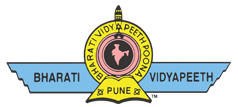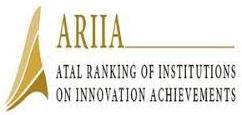NAAC Accredited
AICTE CII Survey Platinum Category
Staff Web mail Login
Vmedulife Login

|

|  |
- Home
- About Us
- Departments
- Academics
- Code of Conduct
- Action Plan
- Core Values
- POs, PEOs, PSOs : All
- NAAC Cycle-2 Reports
- NAAC PTV Cycle - 2 Video
- NAAC Cycle-1 Reports
- Message from the IQAC Coordinator
- SSR Cycle-2
- NAAC Cycle 2 Supporting Documents
- Cycle-2 IIQA
- IQAC Members
- IQAC Minutes of Meetings
- IQAC Manual
- SSR Cycle I
- Institutional Distinctiveness
- Best Practices
- Student Satisfaction Survey
- AQAR
- Feedback action taken report
- Engineering All Report 2025
- Overall All Report 2025
- Engineering All Report 2024
- Overall All Report 2024
- Engineering All Report 2023
- Overall All Report 2023
- Engineering All Report 2022
- Overall All Report 2022
- Engineering All Report 2021
- Overall All Report 2021
- Engineering All Report 2020
- Overall All Report 2020
- Engineering All Report 2019
- Overall All Report 2019
SC/ST Committee
Introduction to SC/ST Act 1989.
The Scheduled Castes and the Scheduled Tribes (Prevention of Atrocities) Act, 1989, commonly referred to as the SC/ST Act, is a comprehensive piece of legislation in India aimed at preventing atrocities and ensuring the protection of the rights of members of the Scheduled Castes (SC) and Scheduled Tribes (ST). In the context of educational institutions, including engineering colleges, the Act emphasizes the establishment of committees to ensure the welfare and protection of SC/ST students and staff.
Objectives of the SC/ST Committee
- Prevention of Atrocities:To prevent any form of discrimination, harassment, or atrocities against SC/ST students and staff.
- Redressal of Grievances:To provide a platform for addressing grievances related to discrimination or harassment faced by SC/ST members.
- Promotion of Inclusivity:To promote an inclusive environment where SC/ST students and staff can thrive academically and socially.
Responsibilities of the SC/ST Committee
- Complaint Handling:Establish a clear procedure for the lodging and resolution of complaints related to discrimination or harassment.
- Support and Counseling:Provide counseling and support services for SC/ST students facing discrimination or academic challenges.
- Monitoring and Reporting:Regularly monitor the campus environment and report any incidents of discrimination or harassment to the relevant authorities.
Procedure for Handling Complaints
- Submission of Complaints:Students or staff members from the SC/ST category can submit their complaints through writing E-mail or on paper writing to the SC/ST Committee on their Email id
- Inquiry:The committee will conduct a thorough inquiry into the complaint, ensuring confidentiality and fairness.
- Action:Based on the findings of the inquiry, the committee will recommend appropriate action to the college administration.
- Follow-up:The committee will follow up on the implementation of the recommended actions and ensure the resolution of the complaint.
Composition of the SC/ST Committee
Committee should consist minimum of 6 members. The Principal of the College is the Chairperson of the Committee
- Chairperson-The Principal of the College is the Chairperson of the cell
- External Member- One senior faculty from University
- Four Members from college faculty and staff (Two lady members from college out of which one members is SC, Two members from college out of which one members is SC)
SC/ST Committee in the college plays a critical role in ensuring the safety, dignity, and equal opportunities for SC/ST students and staff. By adhering to the provisions of the SC/ST Act, 1989, and actively working towards an inclusive and non-discriminatory educational environment, institute can contribute significantly to the empowerment and success of SC/ST members.
SC/ST Committee and Member Details
As per the AICTE guidelines for the composition of SC/ST Committees in educational institutions, including engineering colleges, to ensure the implementation of the responsibilities as mentioned above, the SC/ST Committee is formed. For AY 2024-25, the committee is as following.
| Sr. No. | Name of the Member | Designation | Email ID | Mobile No. |
| 1 | Dr. R. N. Patil | Principal and Chairman | This email address is being protected from spambots. You need JavaScript enabled to view it. | 9822431072 |
| 2 | Dr. M. S. Nagmode | Senior Member(SPPU) | This email address is being protected from spambots. You need JavaScript enabled to view it. | 9226771488 |
| 3 | Dr. S. G. Gawhale | Member | This email address is being protected from spambots. You need JavaScript enabled to view it. | 8308808421 |
| 4 | Ms. P. J. Chate | Member | This email address is being protected from spambots. You need JavaScript enabled to view it. | 9890089168 |
| 5 | Mr. P.G. Rahate | Member | This email address is being protected from spambots. You need JavaScript enabled to view it. | 9975171830 |
| 6 | Mr. S. S. Mulik | Member | This email address is being protected from spambots. You need JavaScript enabled to view it. | 9822673433 |
| 7 | Mr. S. K. Kamble | Member | This email address is being protected from spambots. You need JavaScript enabled to view it. | 8857042767 |
Principal
Anti-ragging Cell
Any type of physical abuse, verbal abuse, forced activity, lifestyle restrictions or conversational mind games could be termed as ragging. Ragging means the doing of any act which causes, or is likely to cause any physical, psychological or physiological harm of apprehension or shame or embarrassment to a student, and includes:
- Teasing or abusing of playing Practical joke on, or causing hurt to any student.
- Asking any student to do any act, or perform anything, which he/she would not, in the ordinary course, be willing to do or perform.
Ragging is different from other crimes because the motive is solely to get perverse pleasure. Any student from the College, if harassed, can contact any member of the Anti-ragging Cell, mentioned in the table below. In case of emergency the students / parents in distress owing to ragging may use National Anti- ragging 24x7 toll-free helpline number 1800-180-5522. For more information they can check the website: www.antiragging.in
Ragging is totally banned on the College Campus and anyone found guilty of ragging and/or abetting ragging is liable to be punished under law as it is a criminal offence.
- Supreme Court Judgement, 2009
- UGC's circular to curb ragging
- Anti-Ragging Committee 2024-25
- Anti-Ragging Committee 2023-24
- Anti-Ragging Committee 2022-23
- Anti-ragging Committee 2021-22
- Anti-ragging Committee 2020-21
- Anti-ragging Committee 2019-20
- Anti-ragging Committee 2018-19


















